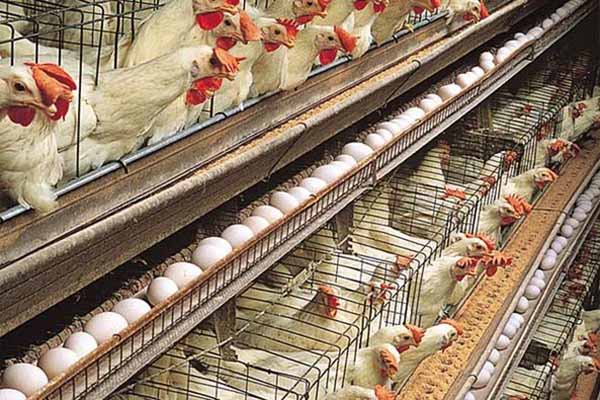How to Start a Pasture-Raised Chicken Farm: A Guide for Aspiring Farmers
Time : 2025-07-25
Are you dreaming of starting your very own pasture-raised chicken farm? As a leading manufacturer of poultry equipment from China, Livi Machinery is here to guide you through the process. Pasture-raised chickens are not only healthier but also more sustainable and environmentally friendly. Let’s dive into how you can start your farm with the right tools and knowledge.
Step 1: Understanding Pasture-Raised Chickens
First things first, what exactly does it mean to have pasture-raised chickens? Unlike chickens raised in confined spaces, pasture-raised chickens are allowed to roam freely in a natural environment, pecking at insects, grass, and other natural foods. This lifestyle results in healthier, tastier birds and has a lower environmental impact.
Step 2: Planning Your Farm
Before you can start building your farm, you need a solid plan. Consider the following:
– Location: Choose a location that is suitable for raising chickens, with access to clean water and space for the chickens to roam.
– Size: Determine how many chickens you want to raise and the size of your farm accordingly.
– Regulations: Research local zoning laws, animal welfare regulations, and any permits required to start a poultry farm.
– Market Research: Understand the market for pasture-raised chicken in your area. Are there already similar farms, or is there a niche market you can target?
Step 3: Selecting Your Chicken Breed
Different chicken breeds have different temperaments, laying patterns, and adaptability to free-range conditions. Some popular pasture-raised chicken breeds include:
– Cornish Cross: Known for their rapid growth and excellent flavor.
– Rhode Island Red: Hardy, friendly, and known for their dark brown eggs.
– Plymouth Rock: Another hearty breed, excellent for free-range farming.
– Welsummer: Renowned for their late-summer egg laying and vibrant plumage.
Step 4: Building the Coop
Your chicken coop is their home and a central component of your farm. Consider the following when building:
– Design: Your coop should provide ample space for the chickens to roost and nest, as well as ventilation and shade to keep them cool during hot weather.
– Materials: Use weather-resistant materials that will withstand the elements and protect your chickens from predators.
– Ventilation: Ensure your coop has proper ventilation to prevent heat stress and to allow ammonia from the droppings to escape.
– Access Points: Include easy access for collecting eggs and regular maintenance.
Step 5: Fencing
Protect your chickens from predators by installing a sturdy fence around your property. Consider:
– Height: Your fence should be high enough to keep predators out. A good rule of thumb is a height of at least 5 feet.
– Material: Choose materials that are durable and hard to dig through for animals like foxes or coyotes.
– Maintenance: Regularly inspect and repair the fence to maintain its integrity.
Step 6: Picking the Right Equipment
The right poultry equipment can make your farming operations more efficient. At Livi Machinery, we offer a range of equipment that can help you:
– Automatic Feeding Systems: These systems can deliver precise feed quantities to your chickens, saving time and ensuring proper nutrition.
– Egg Collecting Machines: Automated systems that help in egg collection, maintaining a clean coop, and preserving egg quality.
– Waterers and Feeders: Ensure that your chickens always have access to clean water and quality feed.
– Environmental Control Systems: Our climate control equipment helps manage temperature and humidity within your coops for the comfort of your chickens.
Step 7: Keeping Your Chickens Healthy
Good health practices are essential for your farm’s success:
– Diet: Feed your chickens a balanced diet suitable for their stage of growth or production.
– Regular Health Checks: Conduct routine health checks and consult with a veterinarian as needed.
– Biosecurity: Practice biosecurity measures to prevent diseases, such as maintaining a clean coop, controlling pests, and minimizing human and animal contact.
Step 8: Marketing Your Farm
Lastly, consider how you’ll market your product:
– Branding: Develop a brand for your pasture-raised chicken products to build consumer trust.
– Distribution: Decide on your distribution channels, whether direct sales at farmers’ markets or partnerships with local grocery stores.
– Educate Your Consumers: Teach consumers about the benefits of pasture-raised chickens, including health and environmental considerations.
By following these steps and leveraging the right poultry equipment, you can successfully start and operate a pasture-raised chicken farm. As a manufacturer committed to supporting farmers, Livi Machinery is here to provide the high-quality equipment and advice you need to succeed.
Related Articles
– Best Chicken Coop Design Ideas
– Benefits of Pasture-Raised Chickens
– Guide to Sustainable Farming Practices
– Marketing Tips for Farm Fresh Products












